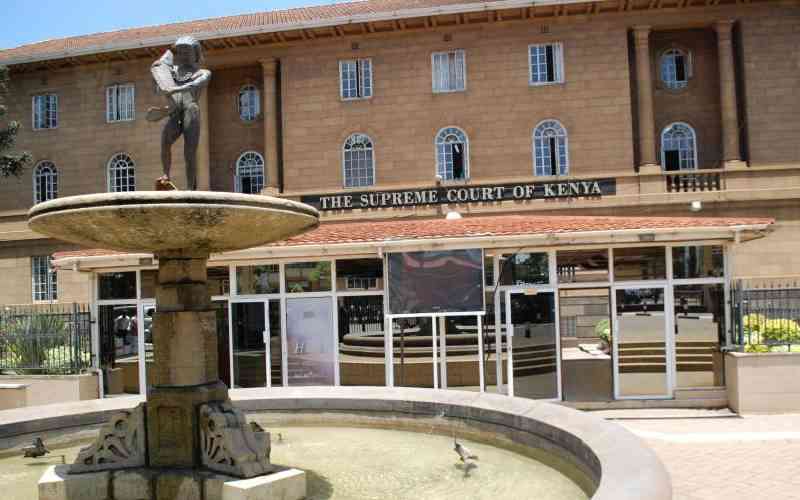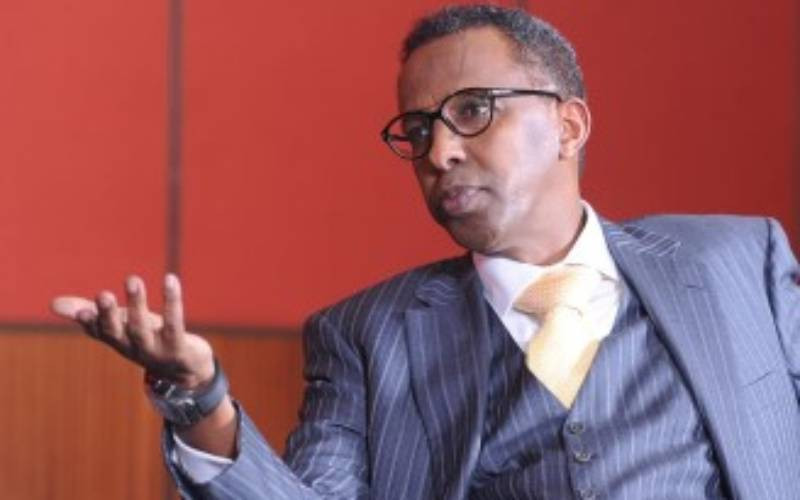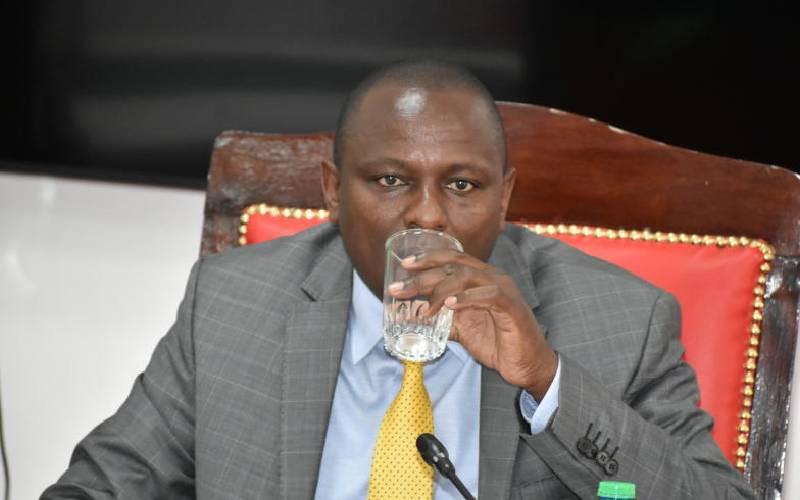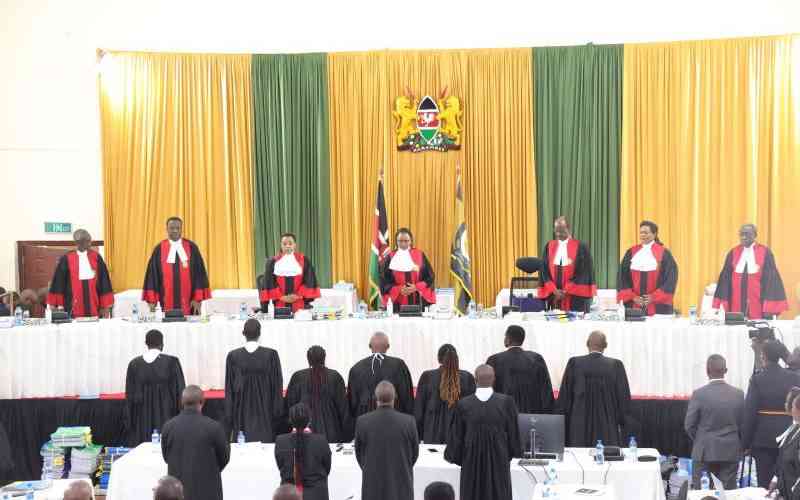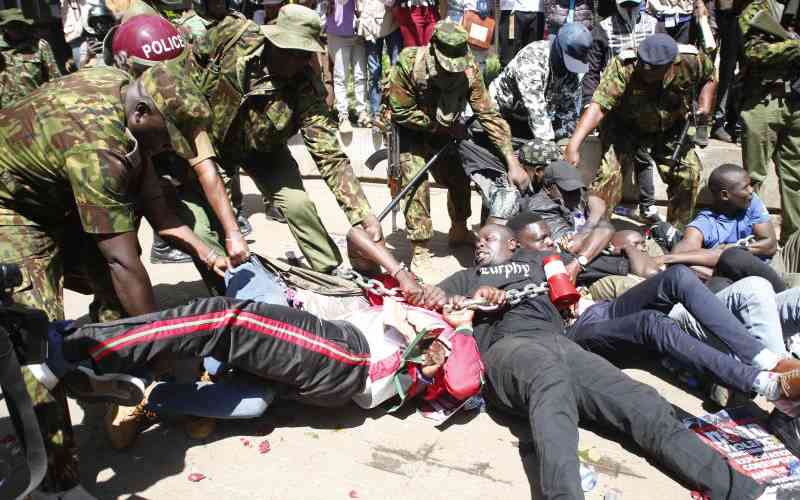Today's Supreme Court ruling on judges' retirement age will determine who will be Kenya's 15th Chief Justice after independence.
It will either be Deputy CJ Lady Justice Kalpana Rawal or Justice Mohamed Ibrahim because of his seniority in the hierarchy of the Supreme Court. Either would serve in acting capacity as the Judicial Service Commission (JSC) begins the process of seeking a successor to Chief Justice Willy Munywoki Mutunga.
It will also either prolong or bring to an end the ongoing tribunal to investigate Justice Philip Tunoi over Sh200 million bribery claim. Any verdict signifying the collapse of the case will strip him of the position of a judge.
But above all, it will signal the reconstruction of the Supreme Court as the retirement of CJ Mutunga, Rawal and Tunoi will leave the highest court with no quorum. The Supreme Court is composed of seven judges. The quorum to constitute it comprises five judges.
There are three preliminary objections the Supreme Court will determine today.
In the first application, activist Okiyah Omtatah has queried the jurisdiction of the court to determine the matter before it. The second application is for the Supreme Court to determine the age of retirement for Justice Kalpana Rawal and Tunoi and whether the CJ had the power to vary the hearing date.
CJ Mutunga brought the case forward to June 2 after Justice Njoki Ndung'u fixed the hearing date as June 24.
"Should the court rule it has no jurisdiction to determine the matter before it, that is, whether Justice Rawal and Justice Tunoi should retire at 74, the decision of the Court of Appeal to have them retire at 70 will prevail," said lawyer Nelson Havi, whose application to be enjoined in the case was thrown out.
Former Speaker and lawyer Maalim Mohamed said whatever the verdict, it should uphold the rule of the law,which is clear that a judge should retire at 70 years.
"As far as the retirement age of the judges is concerned, I hold the view that the two (Rawal and Tunoi) were seeking to hold on due to the old constitution's requirement that the retirement age is 74. In the same breath, the law for retirement age for civil servants was brought forward from 60 to 55. Does it mean that civil servants should hold on and retire at 60," Maalim explained.
In Omtatah's application, Mutunga and Justice Smokin Wanjala, being members of the JSC, which has decreed that the judges must retire at 70 years, cannot preside in their own cause.
Secondly, Justice Tunoi and DCJ Rawal are litigants who have challenged the decision to retire them at 70 years, hence they cannot preside in their own cause.
And finally, Justice Jackton Ojwang and Lady Justice Njoki Ndung'u were part of the Bench which, in Supreme Court Petition No. 23 of 2014, supported the position taken by Tunoi and Rawal that the retirement age of judges appointed under the repealed Constitution is 74 years.
Omtatah argues for outright disqualification of all the Supreme Court judges and not voluntary recusal of the judges, so that Court of Appeal ruling stands as the final decision in the matter.
In the second application, on which the five-judge bench of Mutunga, Smokin Wanjala, Mohamed Ibrahim, Njoki and Jackton Ojwang is expected to rule, Rawal and Tunoi are contesting the Court of Appeal's decision.
Stay informed. Subscribe to our newsletter
Rawal and Tunoi, who were appointed to the bench prior to the promulgation date, insist their tenures end when they turn 74.
 The Standard Group Plc is a
multi-media organization with investments in media platforms spanning newspaper
print operations, television, radio broadcasting, digital and online services. The
Standard Group is recognized as a leading multi-media house in Kenya with a key
influence in matters of national and international interest.
The Standard Group Plc is a
multi-media organization with investments in media platforms spanning newspaper
print operations, television, radio broadcasting, digital and online services. The
Standard Group is recognized as a leading multi-media house in Kenya with a key
influence in matters of national and international interest.
 The Standard Group Plc is a
multi-media organization with investments in media platforms spanning newspaper
print operations, television, radio broadcasting, digital and online services. The
Standard Group is recognized as a leading multi-media house in Kenya with a key
influence in matters of national and international interest.
The Standard Group Plc is a
multi-media organization with investments in media platforms spanning newspaper
print operations, television, radio broadcasting, digital and online services. The
Standard Group is recognized as a leading multi-media house in Kenya with a key
influence in matters of national and international interest.

